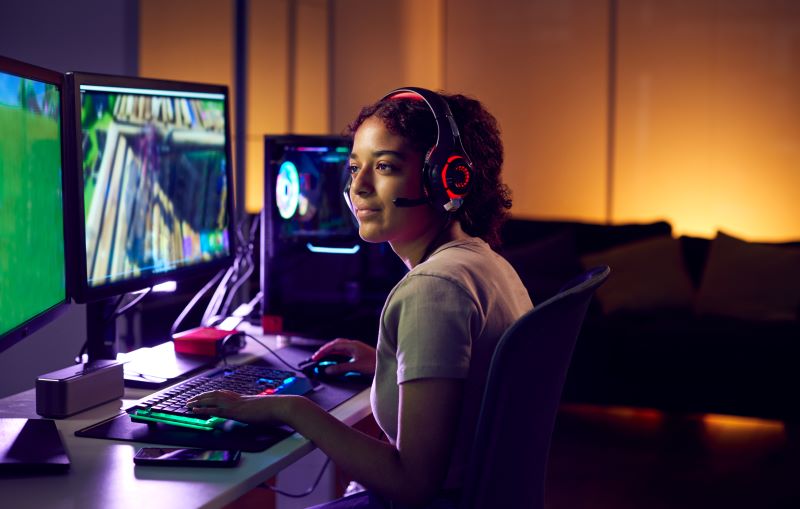 23 Feb 2023
23 Feb 2023
Counseling / Mental Health
Internet Gaming Disorder
It seems like yesterday when my cousin, Peter, introduced me to this new game called Atari’s Pong. This game was far different from board games like Monopoly or Chutes and Ladders. Pong was played on the television!! It was the most amazing thing I have ever experienced. We spent hours and hours blissfully playing Pong and other Atari games. Little did I know that something that brought me so much joy as a kid would be the catalyst to a new addictive behavior also known as internet gaming disorder.
Video Game Addiction, Real or Not?
When I started researching this subject, I was surprised how much information I found on it. How was something I used to pass the time during college or wind down and forget about the stresses of the day and bring so much stress and anxiety to others. Like many drugs of addiction, such as opioids, cocaine, or nicotine, internet gaming disorder releases a pleasurable surge of dopamine that promotes addictive behaviors.
The Cleveland Clinic defines dopamine as a type of neurotransmitter and hormone which plays a role in many important body functions, including movement, memory and pleasurable reward and motivation. It is known as the “feel-good” hormone. The pursuit of this sense of pleasure is what entices people to repeat behaviors, productive or detrimental, that release dopamine which begins on addiction.
Did the Pandemic play a significant role in the growth of gaming addiction?
The simple answer is yes. Video game addiction has grown exponentially during the pandemic. In 2018 The World Health Organization added “gaming disorder” to its medical reference book, International Classification of Diseases. All researchers and health professionals did not view gaming in the same light. In fact, the DSM-5, the American Psychiatric Association’s manual, did not deem it worthy to label it as a disorder. It considered gaming as an activity that could lead to addiction. Research has shown that 86 percent of young adults ages 18 to 24 play online video
games regularly which is up dramatically since 2020.
Studies from 2022 have found that Internet Gaming Disorder (IGD) had risen to an all-time high during the COVID pandemic. The American Psychiatric Association new edition of its manual, Diagnostic and Statistical Manual of Mental Disorders (DSM-5-TR), had to make drastic revisions
Does my child suffer from Internet Gaming Disorder (IGD)?
The DSM-5-TR proposed symptoms of internet gaming disorder include:
● Preoccupation with gaming
● Withdrawal symptoms when gaming is taken away or not possible (sadness, anxiety,
irritability)
● Tolerance, the need to spend more time gaming to satisfy the urge
● Inability to reduce playing, unsuccessful attempts to quit gaming
● Giving up other activities, loss of interest in previously enjoyed activities due to
gaming
● Continuing to game despite problems
● Deceiving family members or others about the amount of time spent on gaming
● The use of gaming to relieve negative moods, such as guilt or hopelessness
● Risk, having jeopardized or lost a job or relationship due to gaming
Under the proposed criteria, a diagnosis of internet gaming disorder would require experiencing
five or more of these symptoms within a year. The condition can include gaming on the internet
with others or alone.
What should I do next?
If you feel as if you or someone you love is showing symptoms of IGD, you should seek professional assistance from your doctor or therapist or your child’s pediatrician. It is important to begin treating video game addiction in the preliminary stages. Mental health counseling therapy such as CBT or cognitive behavioral therapy will teach you to replace thoughts about gaming with more constructive thoughts to change you or your child’s behavior
Author: Guy Humes – Postgrade student at Lamar University
Supervisor in situ: Kenyatta Black Jacobs, LPC-S
